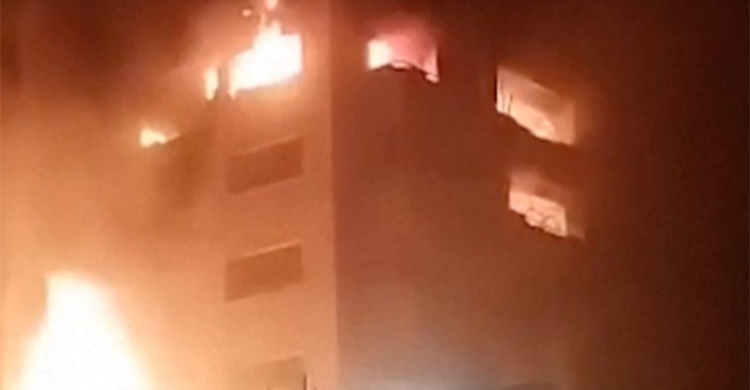Middle East on brink of war as Israel strikes Iran

The Middle East stands at a perilous crossroads following Israel’s airstrikes on Iran’s nuclear facilities, an action that has heightened fears of a region-wide conflict.
The strikes, which triggered air raid sirens across Israel this morning, mark a significant escalation in tensions between the two nations, with experts warning of the potential for catastrophic miscalculations.
Expert warns of escalating conflict
Mona Yacoubian, senior adviser and director of the Middle East Programme at the Centre for Strategic and International Studies, told BBC News that the region is “as close as it’s ever been to sliding into the abyss of a region-wide war.”
She highlighted that Israel’s targeting of Iran’s nuclear sites, coupled with Prime Minister Benjamin Netanyahu’s vow to continue military action “for as many days as it takes,” deviates from the tit-for-tat strikes seen last year.
Yacoubian described Netanyahu’s remarks as an “indirect call for regime change in Iran,” signalling a broader and more ambitious intent that could further inflame tensions. “The longer this goes, the greater the likelihood of unintended escalation, miscalculations and so forth,” she warned.
US response and defensive posture
As Iran vows retaliation, the United States has distanced itself from Israel’s offensive actions. U.S. officials have confirmed they will not provide aerial refuelling for Israeli operations, emphasizing a clear separation from the strikes.
However, with retaliatory Iranian attacks on Israel almost certain, the US faces pressure to bolster Israel’s defence capabilities.
The Biden administration has not outlined specific plans, but past actions suggest the US could deploy missile defence systems or intercept Iranian drones and missiles, as seen in previous conflicts.
The risk of escalation remains high, with US officials noting that “things can slip out of control very quickly.” The coming hours and days are deemed critical in determining the trajectory of the crisis.
UN calls for restraint
United Nations Secretary-General Antonio Guterres condemned Israel’s strikes on Iran’s nuclear installations, expressing particular concern over their timing amid ongoing U.S.-Iran nuclear talks. Speaking through a spokesperson, Guterres urged both sides to exercise “maximum restraint” to prevent a deeper conflict, warning that “the region can hardly afford” further escalation.
The strikes have disrupted delicate negotiations aimed at addressing Iran’s nuclear program, adding another layer of complexity to the crisis.
Regional implications
The Israeli strikes follow a pattern of heightened aggression, with Iran’s Supreme Leader Ayatollah Ali Khamenei promising a response to the attacks, which killed a top Iranian general and two nuclear scientists. Iran’s arsenal, including ballistic missiles and drones, poses a significant threat, as demonstrated in its April 2024 attack on Israel involving over 300 projectiles.
The potential for Iranian retaliation to target US bases in the region or disrupt critical oil and gas exports through the Strait of Hormuz further complicates the situation.
As the international community braces for Iran’s response, the Middle East teeters on the edge of a broader conflict.
The US and its allies are closely monitoring developments, with diplomatic efforts to de-escalate now hanging in the balance.
Source: BBC

